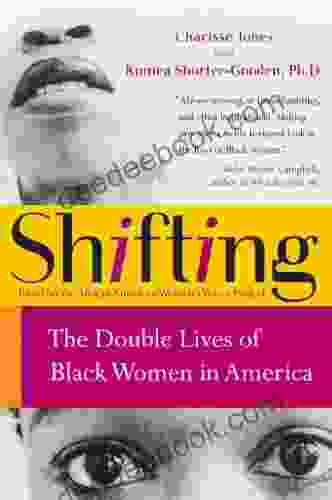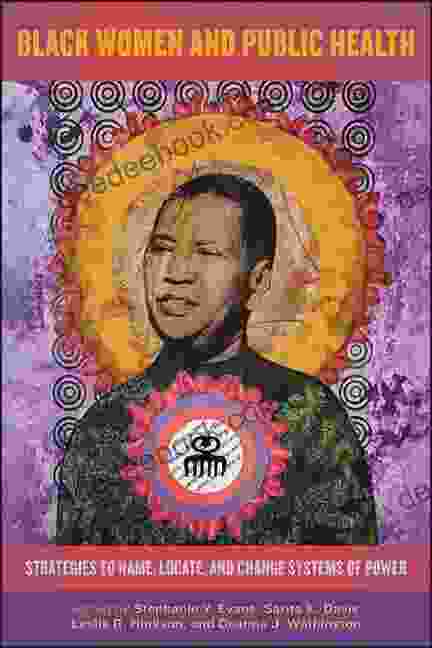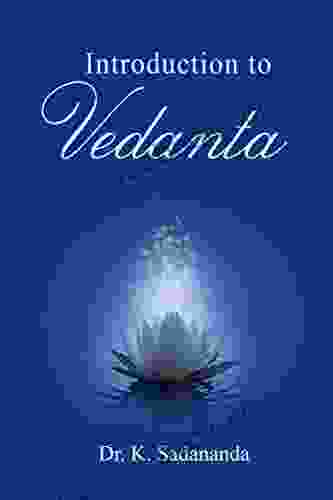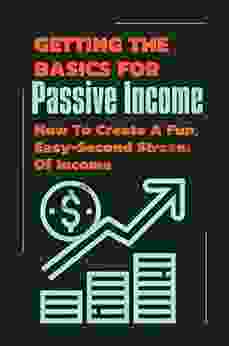An In-Depth Introduction to Vedanta: Exploring the Ancient Indian Philosophy of Liberation

4.6 out of 5
| Language | : | English |
| File size | : | 315 KB |
| Text-to-Speech | : | Enabled |
| Enhanced typesetting | : | Enabled |
| Word Wise | : | Enabled |
| Print length | : | 232 pages |
| Lending | : | Enabled |
| Screen Reader | : | Supported |
Delving into the Essence of Vedanta
Vedanta, derived from the Sanskrit words "Veda" (knowledge) and "anta" (end),represents the culmination of ancient Indian wisdom. It is a profound philosophy that seeks to provide seekers with the ultimate knowledge and liberation from the cycle of birth and death. As the concluding portion of the Vedas, the sacred texts of Hinduism, Vedanta epitomizes the essence of Indian spiritual thought.
The central tenet of Vedanta lies in its emphasis on the non-duality of Brahman and Atman, the ultimate reality and the individual soul. This non-dualistic perspective asserts that the true nature of reality is a unified consciousness, Brahman, within which individual souls, Atman, are interconnected and inseparable. This realization forms the core of Vedantic teachings and guides seekers towards self-realization and liberation.
The Foundational Texts of Vedanta
The foundational texts of Vedanta, known as the Upanishads, present a rich tapestry of teachings and insights into the nature of reality, the self, and the path to liberation. These ancient scriptures, composed between 800 and 500 BCE, offer profound wisdom through dialogues, allegories, and philosophical inquiries.
The Bhagavad Gita, an epic poem embedded within the Mahabharata, serves as another significant text within Vedantic literature. It encapsulates the teachings of Vedanta through the dialogue between Lord Krishna and Arjuna, providing guidance for seekers on the path of righteous action, devotion, and self-realization.
The Key Concepts of Vedanta
At the heart of Vedanta lie several key concepts that shape its philosophical framework:
- Brahman: The ultimate reality, the all-pervading consciousness, and the source of all existence.
- Atman: The individual soul, the essence of one's true self, which is identical to Brahman.
- Maya: The illusion or veil of ignorance that obscures the true nature of reality and creates the perception of duality.
- Karma: The law of cause and effect that governs actions and their consequences.
- Moksha: Liberation, the ultimate goal of Vedanta, which is the realization of one's true nature and freedom from the cycle of birth and death.
The Schools of Vedanta
Over the centuries, various schools of thought emerged within Vedanta, each offering unique interpretations and approaches to its core teachings. The three primary schools include:
- Advaita Vedanta: Propounded by Adi Shankara in the 8th century CE, Advaita Vedanta emphasizes the non-duality of Brahman and Atman. It asserts that the world is an illusion and only Brahman truly exists.
- Vishishtadvaita Vedanta: Founded by Ramanuja in the 11th century CE, Vishishtadvaita Vedanta acknowledges the distinction between Brahman and Atman while recognizing the inherent unity within diversity. It posits that Brahman is the supreme reality and individual souls are distinct but inseparable parts of it.
- Dvaita Vedanta: Established by Madhvacharya in the 13th century CE, Dvaita Vedanta emphasizes the duality of Brahman and Atman. It maintains that Brahman is the supreme Lord and individual souls are eternally distinct and dependent on Him.
The Practices of Vedanta
Vedanta not only provides philosophical insights but also offers practical practices to support seekers on their spiritual journey towards self-realization. These practices include:
- Jnana Yoga: The path of knowledge, emphasizing the study of sacred scriptures and contemplation of Vedantic teachings.
- Bhakti Yoga: The path of devotion, characterized by love and surrender to a chosen deity.
- Karma Yoga: The path of selfless action, performing duties without attachment to the fruits of labor.
- Raja Yoga: The path of mind control, involving meditation and techniques to achieve mental clarity and concentration.
The Impact and Influence of Vedanta
Vedanta has profoundly influenced Indian culture, philosophy, and spirituality. Its teachings have permeated various aspects of Indian society, from art and literature to religious practices and social norms. Vedanta has also inspired and enriched other spiritual traditions, such as Buddhism, Sikhism, and Western mysticism.
The ancient Indian philosophy of Vedanta offers a profound path towards self-realization and liberation. Through its emphasis on the non-duality of Brahman and Atman, its exploration of key concepts, its diverse schools of thought, and its practical practices, Vedanta provides seekers with a comprehensive framework for understanding the nature of reality, the self, and the ultimate goal of human existence. By delving into the wisdom of Vedanta, we can embark on a transformative journey towards inner peace, self-discovery, and the ultimate realization of our true nature.
4.6 out of 5
| Language | : | English |
| File size | : | 315 KB |
| Text-to-Speech | : | Enabled |
| Enhanced typesetting | : | Enabled |
| Word Wise | : | Enabled |
| Print length | : | 232 pages |
| Lending | : | Enabled |
| Screen Reader | : | Supported |
Do you want to contribute by writing guest posts on this blog?
Please contact us and send us a resume of previous articles that you have written.
 Book
Book Novel
Novel Text
Text Genre
Genre Reader
Reader Library
Library Paperback
Paperback E-book
E-book Magazine
Magazine Paragraph
Paragraph Bookmark
Bookmark Shelf
Shelf Preface
Preface Synopsis
Synopsis Manuscript
Manuscript Scroll
Scroll Classics
Classics Biography
Biography Memoir
Memoir Encyclopedia
Encyclopedia Thesaurus
Thesaurus Narrator
Narrator Resolution
Resolution Librarian
Librarian Card Catalog
Card Catalog Borrowing
Borrowing Stacks
Stacks Periodicals
Periodicals Study
Study Research
Research Reserve
Reserve Academic
Academic Special Collections
Special Collections Interlibrary
Interlibrary Literacy
Literacy Study Group
Study Group Storytelling
Storytelling Awards
Awards Reading List
Reading List Textbooks
Textbooks Glenn Beck
Glenn Beck Scott E Sundby
Scott E Sundby Dietrich Rueschemeyer
Dietrich Rueschemeyer Rik Thistle
Rik Thistle Stephen Palmer
Stephen Palmer Henry Chadwick
Henry Chadwick Lindsay Conner
Lindsay Conner Daniel Coleman
Daniel Coleman Akiba Solomon
Akiba Solomon Martin Goodman
Martin Goodman W Cleon Skousen
W Cleon Skousen Joseph Midthun
Joseph Midthun Pippa Norris
Pippa Norris Jon Sopel
Jon Sopel Robin D G Kelley
Robin D G Kelley Beth Kery
Beth Kery Shayne Daku
Shayne Daku Dr Binay Singh
Dr Binay Singh Barbie Scott
Barbie Scott Sheila Hageman
Sheila Hageman
Light bulbAdvertise smarter! Our strategic ad space ensures maximum exposure. Reserve your spot today!
 Dan BellFollow ·4.6k
Dan BellFollow ·4.6k Blake BellFollow ·18.8k
Blake BellFollow ·18.8k Josh CarterFollow ·2.5k
Josh CarterFollow ·2.5k Branson CarterFollow ·16.1k
Branson CarterFollow ·16.1k Brody PowellFollow ·12.6k
Brody PowellFollow ·12.6k Joel MitchellFollow ·15k
Joel MitchellFollow ·15k Forrest ReedFollow ·15.4k
Forrest ReedFollow ·15.4k David BaldacciFollow ·14.4k
David BaldacciFollow ·14.4k

 Ken Follett
Ken FollettThe Double Lives of Black Women in America: Navigating...
Black women in...

 Cade Simmons
Cade SimmonsBanging My Billionaire Boss: A Love Story for the Ages...
Chapter 1: The Interview I was...

 Brent Foster
Brent FosterThe Struggle for Black Enfranchisement: A Complex and...
The struggle for...

 Henry Green
Henry GreenWhen Savage Needs Love: His BBW Obsession
When Savage Needs Love is a 2019 romantic...

 Alexandre Dumas
Alexandre DumasBlack Women and Public Health: A Historical Examination...
Black women have...
4.6 out of 5
| Language | : | English |
| File size | : | 315 KB |
| Text-to-Speech | : | Enabled |
| Enhanced typesetting | : | Enabled |
| Word Wise | : | Enabled |
| Print length | : | 232 pages |
| Lending | : | Enabled |
| Screen Reader | : | Supported |














